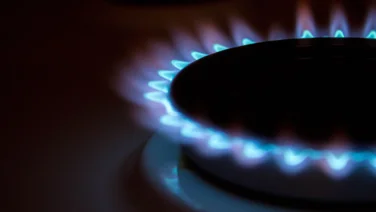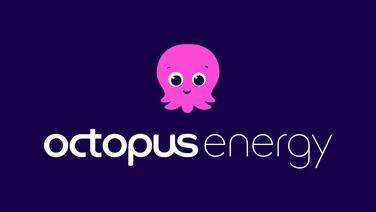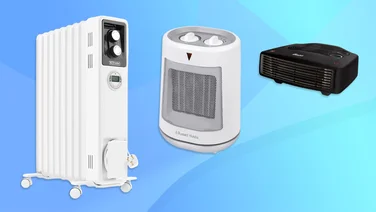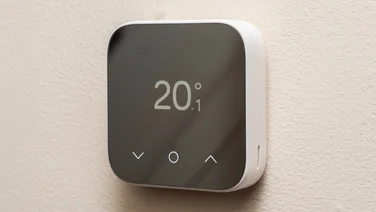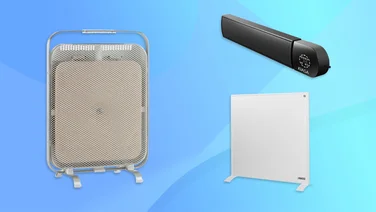To help us provide you with free impartial advice, we may earn a commission if you buy through links on our site. Learn more
- Get a free quote for solar panel installation today
- How to clean your solar panels
- Why do solar panels need cleaning?
- How often should I clean my solar panels?
- Can I clean my solar panels from the ground?
- Can I get electrocuted cleaning solar panels?
- How do I hire a professional solar panel cleaner?
- How much does professional solar panel cleaning cost?

Keeping your solar panels free of dirt, dust and grimy build-up doesn’t just make them look nice to the neighbours. Clean solar panels let in more light and create more electricity, just like a clean window lets in more sunshine.
Cleaning solar panels in the UK is easier than in hot, dry locations such as Spain, because the rain is an excellent natural cleaning assistant. But even with regular rain showers to help, you won’t get the best out of your solar PV panels unless you give them a manual clean once or twice a year. Cleaning may even be in the terms of your solar panels’ warranty.
However, we’re not about to send you up a ladder with a bucket of water slung over your arm. Hiring a professional solar panel cleaner is the best way to give rooftop panels a really thorough cleanse, but you can do a basic clean from the ground with not much more than a garden hose. Here we’ll explain how to clean your solar panels safely and effectively.
READ NEXT: The best solar panels to buy
Get a free quote for solar panel installation today
Find out how much solar panels could cost you by taking our quick survey below – we’ll provide a free quote for a service that matches your requirements.
How to clean your solar panels
Why do solar panels need cleaning?
Clean solar panels let more sunlight into the photovoltaic (PV) cells that turn that light into electricity. If your panels are dirty, the sky might as well be dark all the time.
A study into industrial solar panels published in Springer Nature finds that “due to the accumulation of dust, the efficiency of solar modules and panels in terms of power can be reduced up to 60%.” Granted, the panels in the study were in the desert, which sees a lot more dust and less rain than your roof does, but the point remains. In the UK, dirty residential panels are generally reckoned to be 20% less efficient.
Keeping your panels clean also has these benefits:
Durability: Cleaning is an important part of solar panel maintenance. Dust, stones and leaves can damage the glass surface of the panels, especially when left to accumulate, and this will undermine the longevity of your panels.
Aesthetics: A gleaming set of solar panels looks great on your roof. A filthy set of solar panels doesn’t have quite the same kerb appeal.
Inspection: If you or your professional cleaner gets close to your panels when cleaning, it’s an opportunity to check for faults and small cracks.
Warranty: Most solar panel manufacturers specify regular cleaning as a condition in their warranty terms. They may even refuse to fix a fault if your panels are in a dirty state, not least because a bad build-up of dirt may make the system hard to access.
How often should I clean my solar panels?
Most solar panel systems in the UK need cleaning every year to maintain efficiency and productivity, but some systems need a more regular cleanse.
Your panels could use a six-monthly clean if you live close to trees and other vegetation (source of bird droppings as well as leaf fall), near the sea (salty air leaves more residue), or next to a main road (build-up of exhaust fumes). And if your panels have been installed at a relatively flat angle, they’ll probably accumulate more dirt than if they’re at the ideal 40-degree angle.
Can I clean my solar panels from the ground?
Yes, and it’s much safer than attempting to climb a ladder. Here’s a step-by-step guide to cleaning your solar panels from the ground:
1. Switch off the entire solar PV system. Your solar PV system manual will tell you how to do this.
2. Gently remove any loose dirt and leaves using a leaf blower or a soft brush with a long (very long, preferably extendable) handle.
3. Mix warm water and washing up liquid. Don’t use strong chemicals such as mould remover, because this will leave marks on the glass. Also avoid abrasive products that’ll scratch the glass.
4. Use your long-handled brush or sponge to gently wipe the surfaces of the panels. Wet any caked-on dirt such as bird droppings, then leave it for a while before wiping off as much of it as you can. Really stubborn dirt is hard to tackle from the ground, so you may need to call in the professionals.
5. Alternatively, use your garden hose. If the hose has a spray function (or you half-cover the hose end with your thumb to create a DIY spray), that can remove more dirt without the need to climb any ladders or come into contact with your panels, which can be hazardous for them as well as for you. Keep the water pressure light to avoid damaging the panels.
Don’t use a jet-washer or high-pressure cleaner. They’d get your panels clean alright, but they may also damage them and and their silicon seams, and may even dislodge your roof tiles.
A smarter buy would be an extendable water-fed cleaning brush. You can get these from Amazon for around £100, either on their own or as part of a solar panel cleaning kit. For example, the 24ft (7.3m) version of Hi-Tec’s water-fed window cleaning pole (pictured below) is currently available from Amazon for £119. It’s made from lightweight aluminium for easy handling, and has a series of lock levers that let you easily extend it to reach the panels on your roof, then collapse it down to under 2m for easy storage.

6. Remove the water with a rubber squeegee to avoid building up limescale, especially if you’re in a hard water area. The best extendable solar panel cleaning brushes include a squeegee attachment.
Hot weather will make your panels dry faster, but this is actually a bad idea. When hot sun makes the water evaporate, it leaves smudges that stop your panels working at their best. To be on the safe side, do your cleaning on an overcast day that gives you a chance to squeegee off the water before it dries.
Can I get electrocuted cleaning solar panels?
Solar panels aren’t dangerous per se when they come into contact with water – they’re designed to be rained on, after all. But yes, there is a danger of electrocution if you go near them with water (or even spray water at them from a distance) when the system is switched on. In fact, the high risk of electrocution is why solar panel companies generally won’t install in the rain.
READ NEXT: Solar panels grants, explained
So before you start cleaning, switch off your entire solar PV system. Not just the inverter (the part of the system that converts DC electricity into safer home AC), but the whole system.
If you decide to hire a professional solar panel cleaner, the first thing he or she will do is power down the system. They may also use a voltmeter to test the live current of the solar panels if they intend to get close to them with water.
How do I hire a professional solar panel cleaner?
If your solar panels need a thorough clean and you know you won’t be able to get it done from the ground, then bring in the pros. Professional solar panel cleaning services have the training, kit and insurance to clean your panels to a high standard in an hour or two.
If you do opt to hire a professional, make sure the company specialises in cleaning solar panels. Your installer is the best person to ask for a recommendation. They can also advise you on how much a solar panel array like yours should cost to clean.
How much does professional solar panel cleaning cost?
Solar panel cleaning services typically costs from £100 to £200 a time, and it’s well worth it to keep your panel working at their best. Price will vary depending on the size of your solar PV system, where your panels are installed, and whether your roof has any quirks that make the job extra tricky.

